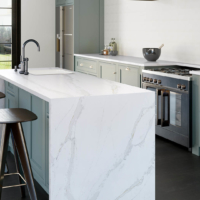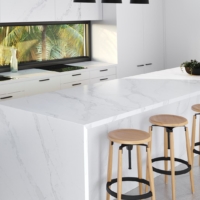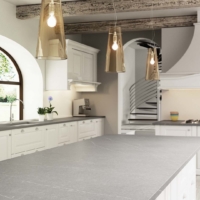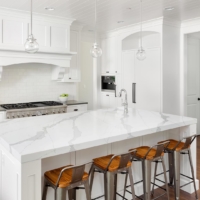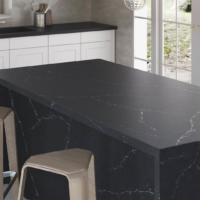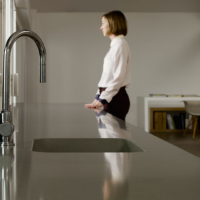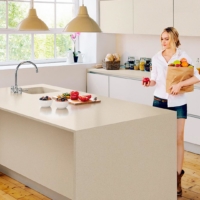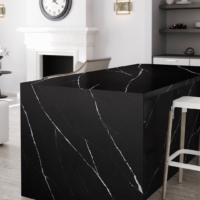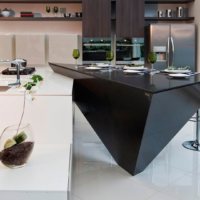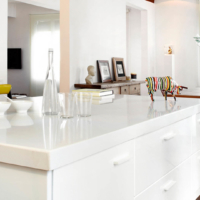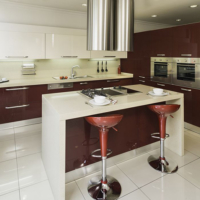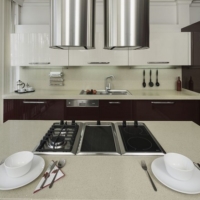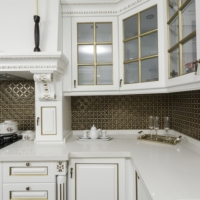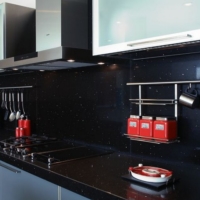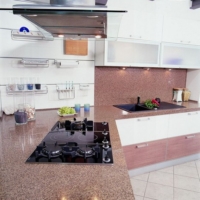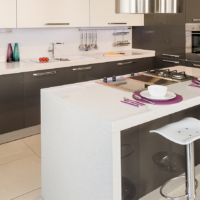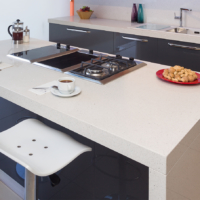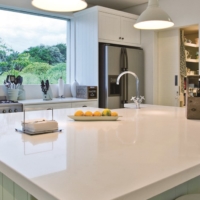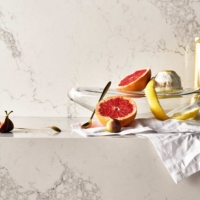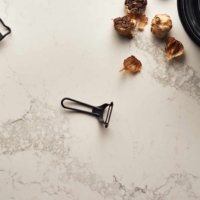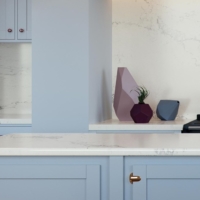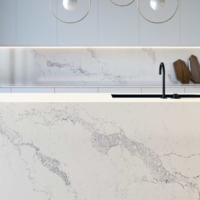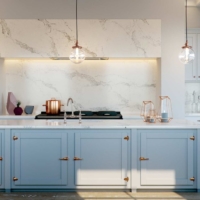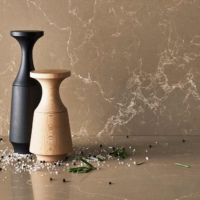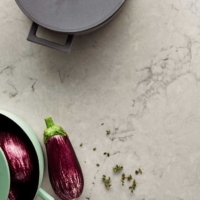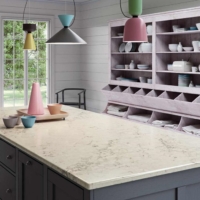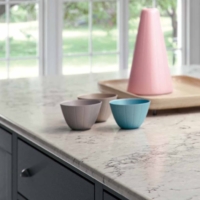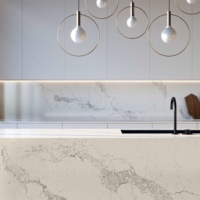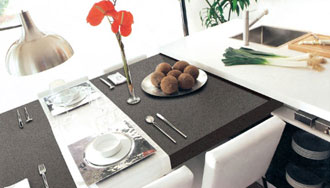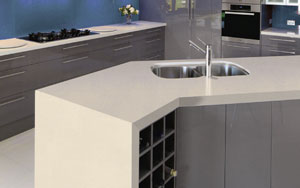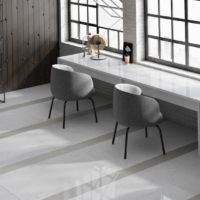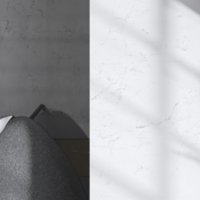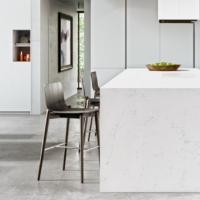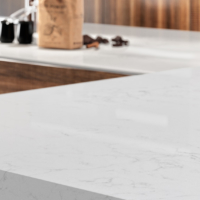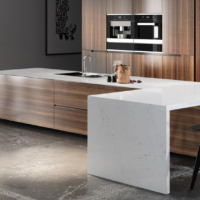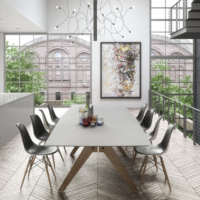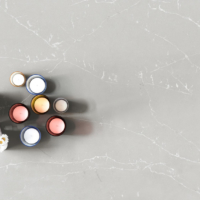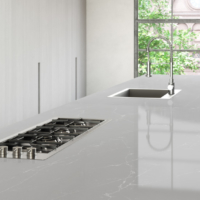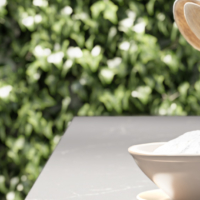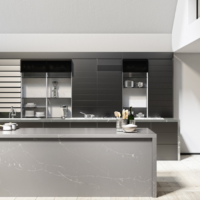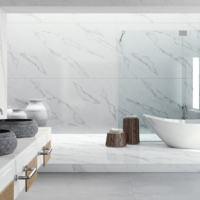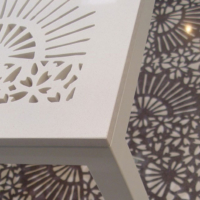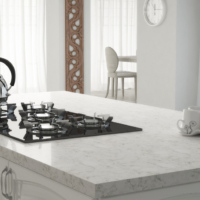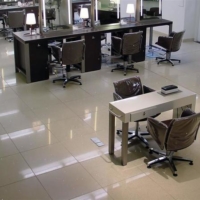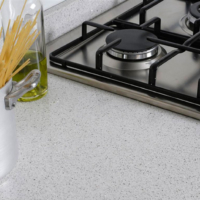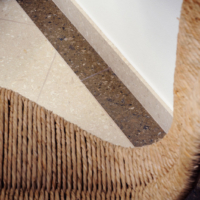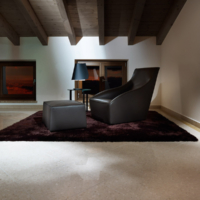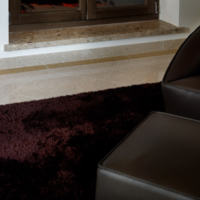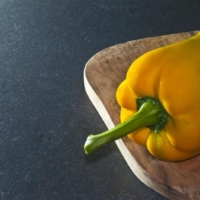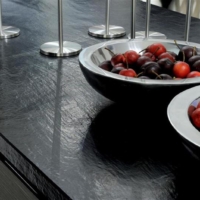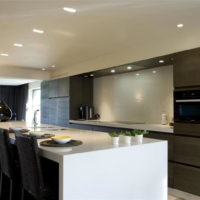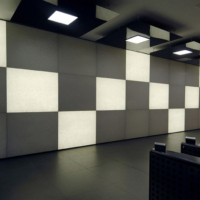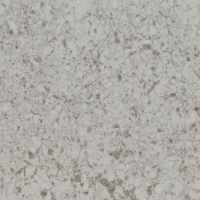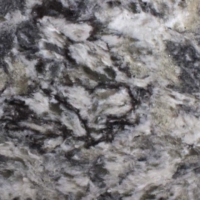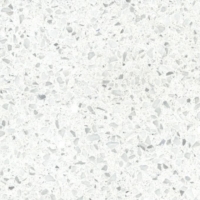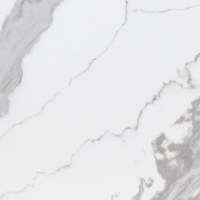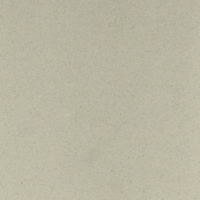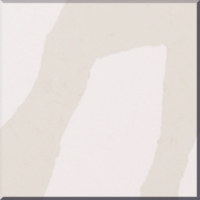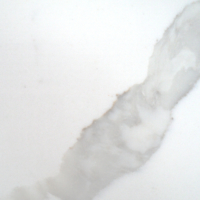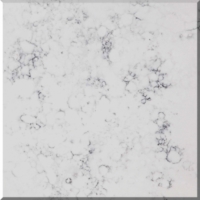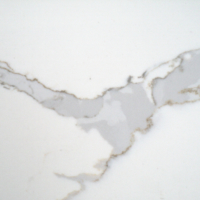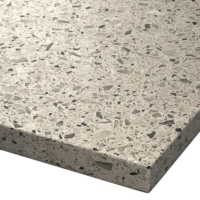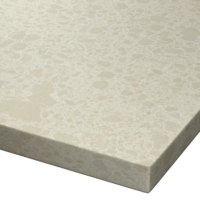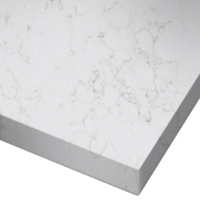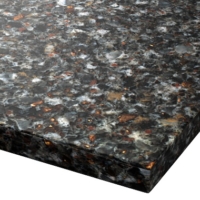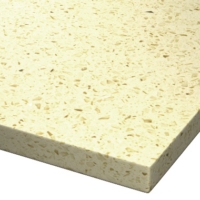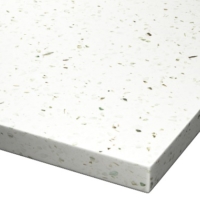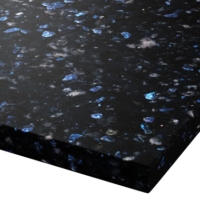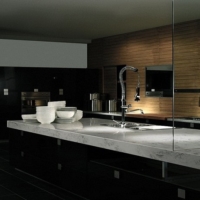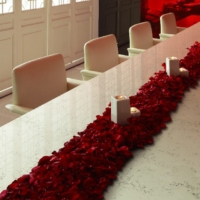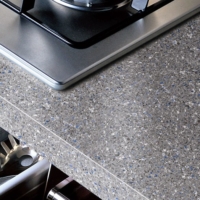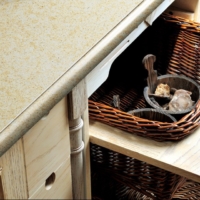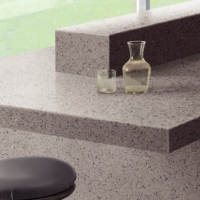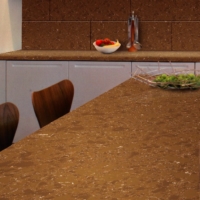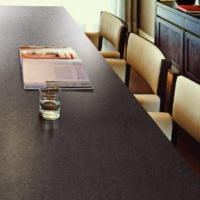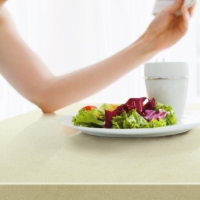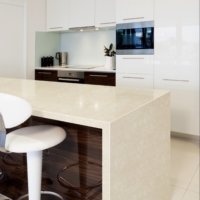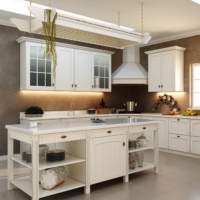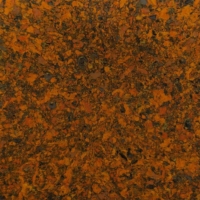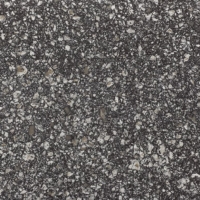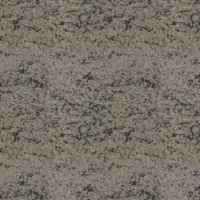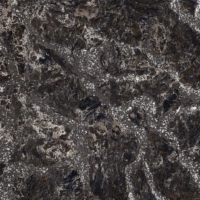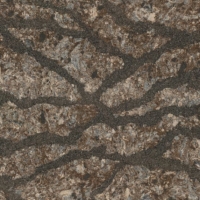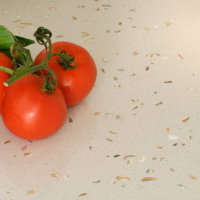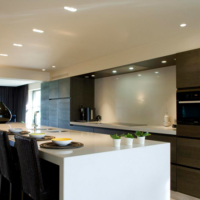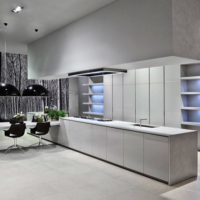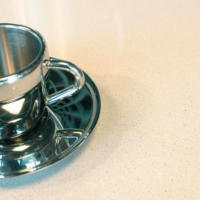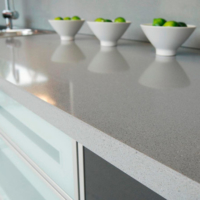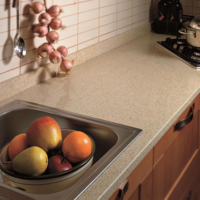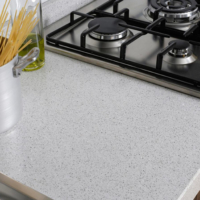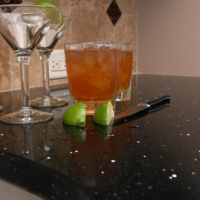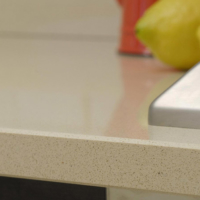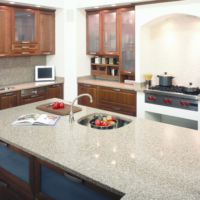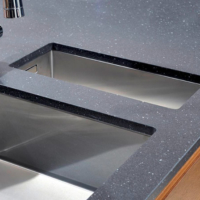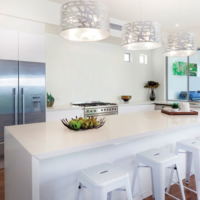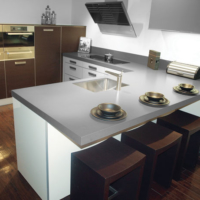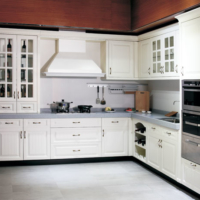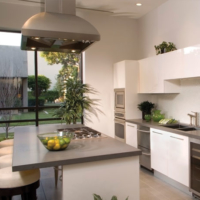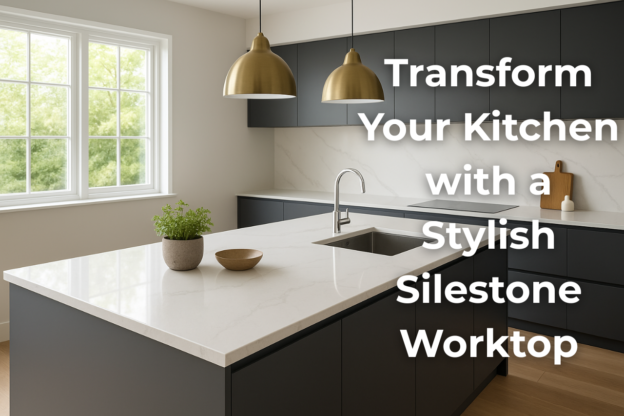When designing or remodeling your kitchen, one of the most crucial decisions you’ll face is choosing the right worktop. Not only do worktops contribute to the overall aesthetic of your space, but they also play a vital role in functionality. For homeowners who want a blend of beauty, durability, and low maintenance, quartz kitchen worktops are an excellent option. Whether you’re designing a modern, traditional, or eclectic kitchen, there’s a perfect quartz countertop style to suit your needs.
Why Choose Quartz Kitchen Worktops?
Quartz worktops are a popular choice for kitchens due to their impressive durability and variety of styles. Made from engineered stone, quartz countertops are made from crushed natural stone mixed with resin, providing a non-porous, durable surface that is resistant to stains, scratches, and heat. Here are some reasons to consider quartz kitchen worktops for your next project:
-
Durability: Quartz is one of the hardest natural stones, making it highly resistant to damage.
-
Low Maintenance: Unlike granite or marble, quartz doesn’t need sealing, and it’s easier to clean with just soap and water.
-
Versatility: Available in a wide range of colors, patterns, and finishes, quartz can match any kitchen style.
-
Aesthetic Appeal: Quartz can mimic the look of high-end stones like marble or granite while offering a more consistent and uniform appearance.
Best Quartz Kitchen Worktops for Different Kitchen Styles
Let’s explore some of the best quartz kitchen worktops to complement various kitchen styles:
1. Modern and Minimalist Kitchens
Modern kitchens are all about sleek lines, clean surfaces, and minimalistic aesthetics. For these types of kitchens, you’ll want a quartz countertop that complements the simplicity and elegance of the space.
Recommended Quartz Options:
-
Pure White Quartz: A timeless choice for modern kitchens, pure white quartz worktops give the space a clean, crisp look. The bright, reflective surface enhances natural light and gives the room a feeling of openness. Perfect for creating a minimalist, high-end vibe.
-
Grey or Charcoal Quartz: If you want a bit more contrast but still prefer a neutral look, grey or charcoal quartz countertops are excellent choices. They pair beautifully with white or light cabinetry and can add depth to the kitchen without overpowering the space.
Style Tip: Opt for flat-edge or mitered edges for a seamless, sleek finish. Avoid overly ornate designs, as simplicity is key to achieving a modern look.
2. Traditional Kitchens
Traditional kitchens are often warm, inviting, and rich in character. If you’re aiming for a classic kitchen design with a more timeless appeal, you’ll need quartz countertops that have a touch of old-world charm while offering modern-day functionality.
Recommended Quartz Options:
-
Cream and Beige Quartz: Lighter shades like cream and beige are ideal for traditional kitchens. They complement wood cabinetry, adding warmth without clashing with the rustic, antique look of wooden furniture.
-
Marble-Effect Quartz: If you love the luxurious look of marble but are concerned about maintenance, marble-effect quartz offers the best of both worlds. It mimics the natural veins of marble, making it perfect for those who want an elegant, traditional kitchen with less upkeep.
Style Tip: Pair cream or beige quartz with natural wood finishes for a cozy, inviting feel. Choose intricate details like scalloped edges or decorative inlays to enhance the traditional aesthetic.
3. Contemporary Kitchens
Contemporary kitchens blend modern and traditional elements to create a more flexible, functional space. With an emphasis on clean lines, open layouts, and minimalistic design, contemporary kitchens are ideal for showcasing quartz worktops with a bold, sophisticated appearance.
Recommended Quartz Options:
-
Black Quartz: A bold, statement-making choice, black quartz worktops add drama and luxury to any contemporary kitchen. The deep, rich color contrasts beautifully with light cabinetry, stainless steel appliances, and modern fixtures.
-
Textured Quartz (Matte Finish): Textured or matte-finish quartz worktops can add visual interest to contemporary kitchens. These countertops offer a tactile experience, providing subtle variations in color and texture without being overly flashy.
Style Tip: For a balanced contemporary look, pair black quartz countertops with light-colored cabinetry or even bold accent walls. Stainless steel or brass fixtures will also enhance the contemporary aesthetic.
4. Industrial Kitchens
Industrial kitchens have a raw, edgy vibe that blends exposed brick, metal, and wood. These kitchens require worktops that stand up to the rugged elements and enhance the overall industrial feel.
Recommended Quartz Options:
-
Concrete Effect Quartz: Quartz countertops that mimic the look of concrete are perfect for industrial-style kitchens. They combine the toughness of concrete with the easy maintenance of quartz, offering a modern yet gritty vibe.
-
Dark Grey or Charcoal Quartz with Flecks: Dark grey or charcoal quartz with subtle flecks can add texture and depth to the worktop, making it a great choice for industrial spaces. The speckled patterns enhance the rugged aesthetic while still providing a smooth, durable surface.
Style Tip: Exposed pipes, open shelving, and matte finishes complement quartz countertops in an industrial kitchen. Pair dark quartz with stainless steel or black hardware for a cohesive look.
5. Rustic Kitchens
Rustic kitchens evoke a sense of warmth, comfort, and charm. They often feature natural materials like wood, stone, and iron. When choosing quartz for a rustic kitchen, it’s essential to choose a worktop that adds warmth and complements the organic textures in the space.
Recommended Quartz Options:
-
Brown or Taupe Quartz: Brown, taupe, and other earthy tones bring a cozy, inviting feel to rustic kitchens. These colors pair beautifully with wood elements, creating a harmonious, grounded aesthetic.
-
Stone-Look Quartz: Stone-effect quartz mimics the appearance of natural stone like limestone or slate, which suits rustic kitchens perfectly. This type of quartz works well with wooden beams and cabinetry for an earthy, organic vibe.
Style Tip: Pair brown or stone-effect quartz countertops with open shelving, exposed beams, and distressed finishes for an authentic rustic feel.
How to Care for Your Quartz Kitchen Worktops
Quartz worktops are known for being low-maintenance, but a few simple steps will keep them looking their best for years to come:
-
Wipe spills immediately: While quartz is non-porous and resistant to stains, it’s best to clean up spills as soon as they happen to prevent any potential staining from acidic liquids like wine or vinegar.
-
Avoid harsh chemicals: Use a mild detergent and warm water for everyday cleaning. Harsh chemicals or abrasive cleaners can damage the surface.
-
Use cutting boards and trivets: Although quartz is durable, it’s best to use cutting boards to avoid scratching the surface, and trivets to prevent heat damage.
FAQ: Quartz Kitchen Worktops
Q1: Are quartz worktops more durable than granite?
A1: Yes, quartz is more durable than granite in many ways. While granite is naturally durable, quartz is engineered to be even harder, making it more resistant to scratches, chips, and stains. It’s also non-porous, so it doesn’t need sealing like granite.
Q2: Can quartz worktops be used outdoors?
A2: It’s not recommended to use quartz for outdoor kitchens or surfaces exposed to direct sunlight for extended periods. UV exposure can cause the color to fade over time.
Q3: Do quartz countertops stain easily?
A3: Quartz countertops are resistant to stains due to their non-porous nature. However, it’s still important to clean up spills promptly, especially those involving acidic substances like citrus or wine.
Q4: How long do quartz worktops last?
A4: With proper care and maintenance, quartz countertops can last for decades, offering long-lasting durability and performance.
Q5: Can I install quartz worktops myself?
A5: Installing quartz countertops requires professional expertise due to their weight and the need for precise cutting. It’s best to hire a professional installer to ensure a proper fit.
Conclusion
Quartz kitchen worktops are an excellent investment for any kitchen style. Whether you prefer a minimalist modern design, a cozy traditional kitchen, or a bold contemporary space, there’s a quartz countertop that will enhance the look and function of your kitchen. With their durability, low maintenance, and wide range of styles, quartz countertops provide the perfect balance of beauty and practicality.

